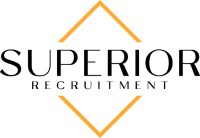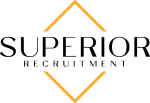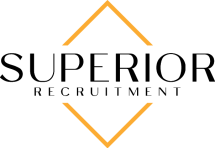One of the questions candidates dread the most in a job interview is “What would you consider to be your top weakness?” It can feel simultaneously counter-intuitive and cringe worthy to highlight one’s weaknesses during a discussion that should be completely focused on strengths, right? Well…maybe not. Here are two suggested ways to truthfully answer the ‘weakness’ interview question. Superior Recruitment offers suggested ways to best answer the perceived flaws, imperfections or weaknesses interview question.
We ALL have weaknesses and strengths. AND we also have the capacity to be coached and change — give yourself the opportunity to do so rather than labelling yourself as something fixed like ‘terrible at X’ or “the worst at Y.
“What’s your biggest weakness?” perhaps the best, safest approach is “strategic vulnerability”—being revealing in a way that is honest but not uncomfortably risky.
So, what’s the difference between the “avoid/spin approach” and “strategic vulnerability?” With the former, candidates either try to dodge the question altogether or they spin it by selecting a “weakness” that masquerades as a strength.
For example, they may respond with predictable answers like “I work too hard,” “I pitch in to help others too much which can impact my work-life balance,” or “I’m such a perfectionist.” While these type responses may in fact be true, they can sometimes feel generic or off-putting. Or at times lacking self-assessment and ability or unwillingness to share true developmental areas. Some recruiters may feel the candidate is too focused on being clever and not really making an attempt to be genuine and connect.
On the other end of the scale, responses that make your weaknesses sound like major problems or significant deficiencies are not advisable. Hearing someone say that they can never get tasks completed on time, detest working on teams and have no desire to problem solve (A Red Flag!).
The “strategic vulnerability” approach attempts to strike a balance between these two extremes. With this approach, the candidate identifies a true developmental area that doesn’t damage their credibility/perception overall and frames it in a positive way. It might sound like this…
For example “Having worked in a xyz environment for many years, I’ve focused a lot on detailed technical activities like analyzing and documenting research which is great, but I’ve noticed that my presentation skills aren’t as strong. So I’ve taken some training and have been actively working to improve in this area.
One of the reasons why I think I’d be a great fit with this team is that I bring strong analytical skills which would be an asset to the group, and I’d also grow a lot given the need to present findings to clients and others.”
There’s no one perfect way to approach this question and several things should be considered during a job interview:
– What type of rapport have you established with the interviewer?
– Have you researched the company/team culture and how well does it fit with your personality?
– How relevant is your “weakness” to the specific role for which you’re interviewing?
– Do you feel that your application and experience is strong enough to discuss flaws without significantly impacting your perception overall?
Keep in mind that being selected for a role that truly isn’t a good fit isn’t a win for anyone. Revealing a particularly relevant developmental area might be an important step in discovering that the role isn’t the right fit for you at this time isn’t a bad thing.)
My two take away tips for preparing for interviews:

Top Tip #1 Explain career breaks – show recruiters and potential employers the real you
Top Tip# 2 Some of the best interviews are not ones where you project an image of invincibility and perfection. Be honest and highlight and celebrate the unique value that you bring to the table



